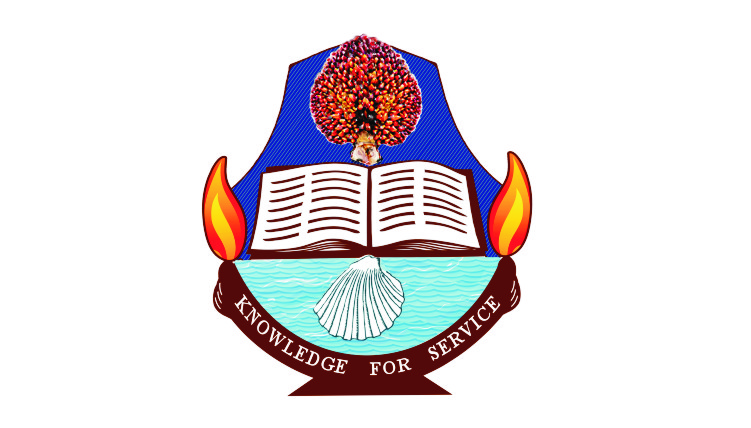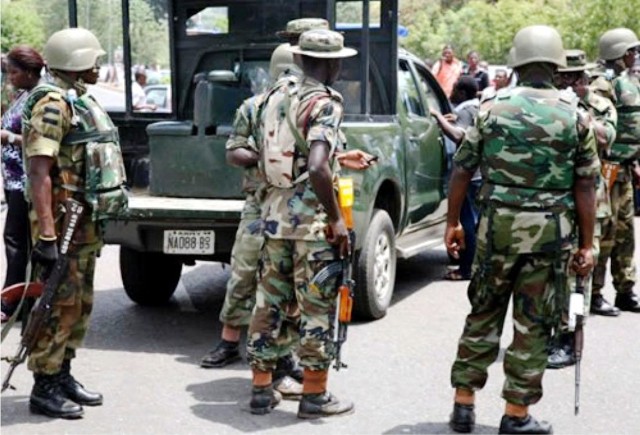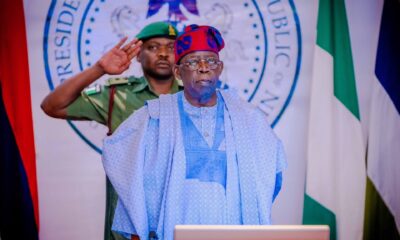Niger Delta
AAU Crisis: ASUU Storms Ekpoma For Solidarity Rally

The lingering industrial crisis at the Ambrose Alli University (AAU), Ekpoma, Edo State, worsened on Wednesday as the national leaders of the Academic Staff Union of Universities (ASUU) staged a solidarity rally round the community.
The rally, led by the National President of the union, Prof. Emmanuel Osodeke, caused gridlock at the centre of the town.
The Tide’s source reports that chairmen of local branches and past presidents of the union joined in the protest that witnessed a large turnout of lecturers.
Addressing newsmen beside the statue of the late former Governor of old Bendel State, Prof. Ambrose Alli, Osodoke frowned at ASUU’s ban in the university by the State Governor, Godwin Obaseki.
The Governor, he said, lacks the power to suspend a properly registered union such as ASUU that had the right to operate anywhere in the country.
The ASUU President also noted that the setting up of Special Intervention Team (SIT), headed by an holder of Nigerian Certificate in Education (NCE), to run the university as against a governing council negated the law.
“As we speak to you, this university does not have any substantive officer.
“The Vice Chancellor is acting, deputy vice chancellor is acting, bursar acting, registrar acting, Librarian acting, which is against the rules of any university,” he said.
The union leader decried the situation where all principal officers of the institution were appointed in acting capacities.
Osodoke, however, asserted that the only way to guarantee industrial harmony was for the state government to retract its decision and allow the union to run without interference.
He also called for the payment of salary arrears to the lecturers as well as the remittance of deductions for dues and contributions for cooperative.
The AAU ASUU branch Chairman, Dr Cyril Onogbosele, said the solidarity rally was to show there was no distinction between union in state and federal universities.”We want revitalisation of public universities. We want better conditions of service, infrastructural development, universities autonomy. That is what the strike is all about.
“In AAU, one of them is inadequate funding. For a long time, we have had these problems.
“Workers have been denied their salaries for 19 months now.
“Many of us are dying as a result of that. We cannot meet our financial obligations to our families because of unpaid salaries,” he said.
The branch ASUU chairman claimed that no fewer than 19 lecturers had died because they could not afford medicare.
On his part, the immediate past President of the union, Prof. BiodunOpeyemi, said the union needed to rise up against the action of the state governor, proscribing union activities in the state owned institution, in order to deter other state governors from following Obaseki’s step.
In her reaction, the State Commissioner for Education, Dr Joan Osa-Oviawe, said the State Government was focused on prioritising the academic welfare of our students and ensuring that there is value for money.
Tertiary education, she said, was being revamped in the state to ensure that graduates were ready for the world of work and also skilled enough to be relevant in the 4th industrial revolution in a technology-driven, hyper modern world.
The source reports the Edo State Government and the ASUU at the state owned institution had been at a loggerhead for years over accusations and counter-accusations bordering on welfare of academic staff.
Niger Delta
Make God Your Anchor To Fulfill Destiny, Cleric Charges Christians … As Jaja Marks 70th Birthday

The Lead Pastor at Jesus Appointed People’s Bible Church, Ozogbe, Ikwerrengwo-Etche, in Etche Local Government Area of Rivers State, Pastor Promise Nwaelele, has urged Christians to make God the anchor of their lives in whatever position they find themselves, in order to attain the destinies set for them by God.
Pastor Nwaelele, who gave the charge recently in a sermon he preached at the 70th birthday anniversary thanksgiving service of Sir Donald Michael Jaja, a veteran journalist in Rivers State, said this is because any genuine child of God is a permanent target for destabilization and destruction by the devil.
Taking his text from the Bible book of Mark 4:16-17, the preacher stated that fulfilment in life for a child of God required faith, obedience to God’s word, humility and grace to withstand trials and temptations.
According to him, temptations and afflictions are bound to happen in the lives of those who have accepted Jesus Christ as their Lord and Savior.
“No wonder the Bible said that those that endure till the end shall be saved”, he said.
The Clergyman said God prospers believers who are humble, not proud and conceited, and leads them to destiny fulfilment.
“David said in Psalm 51:17, that the sacrifices acceptable to God are a broken spirit, not an impatient or proud spirit”, the preacher said.
He called on Christians not to allow persecutions and afflictions to sway them from the love and blessings of Jesus Christ.
On his part, Jaja, a seasoned Journalist who retired as an Acting Editor of the Rivers State Government-owned The Tide Newspaper, gave thanks to God for honouring him by giving him the grace of attaining 70 years.
“I cannot capture what the good Lord has done for me in my entire life in this fleeting moment of thanksgiving. But, I know that without Him, I wouldn’t have been who I am today, in all spheres. Therefore, my joy knows no bounds as I give thanks to my creator today, alongside my family. Praise be His holy name”, Jaja said.
Niger Delta
Remember Me As Fighter Against Sexual Harassment – UNICAL VC

Niger Delta
Oborevwori Presents N1.664tn 2026 Appropriations Bill

-

 Featured5 days ago
Featured5 days agoOil & Gas: Rivers Remains The Best Investment Destination – Fubara
-
Nation5 days ago
MOSIEND Calls For RSG, NDDC, Stakeholders’ Intervention In Obolo Nation
-

 News5 days ago
News5 days agoNDLEA Arrests Two, Intercepts Illicit Drugs Packaged As Christmas Cookies
-

 News5 days ago
News5 days agoTroops Rescue 12 Abducted Teenage Girls In Borno
-

 News5 days ago
News5 days agoInvestment In Education Remains Top Priority For Gov Fubara – SSG
-

 News5 days ago
News5 days agoChina Alerts Rivers, A’Ibom, Abia Govs To Economic Triangle
-

 Featured5 days ago
Featured5 days agoLady Fubara Lauds Rivers Women On Peace, Development
-

 News5 days ago
News5 days agoTinubu Nominates Ex-INEC Chair Yakubu, Fani-Kayode, Omokri, 29 Others As Ambassadors

